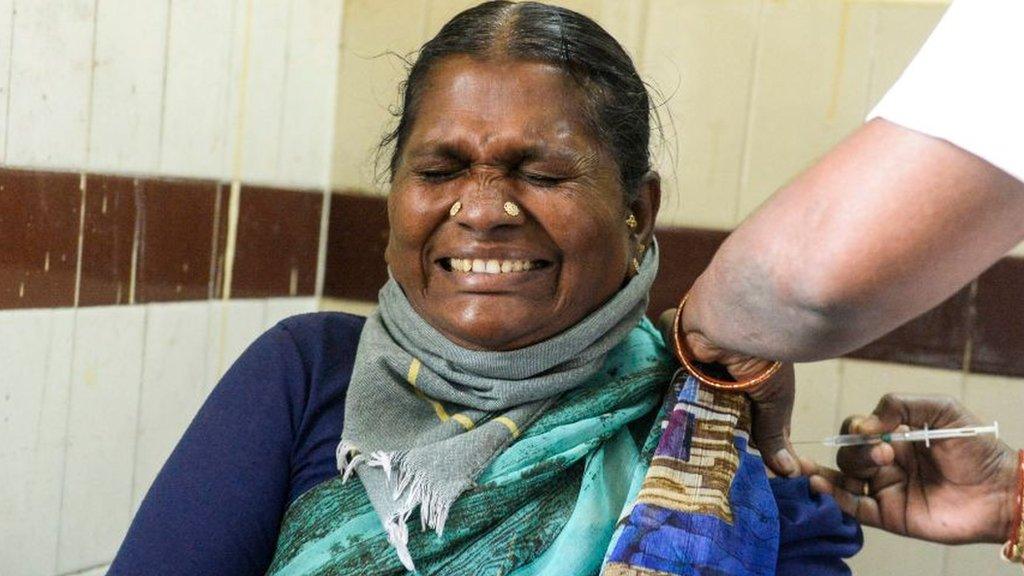India Covid: Maharashtra to go into lockdown unless cases fall
- Published
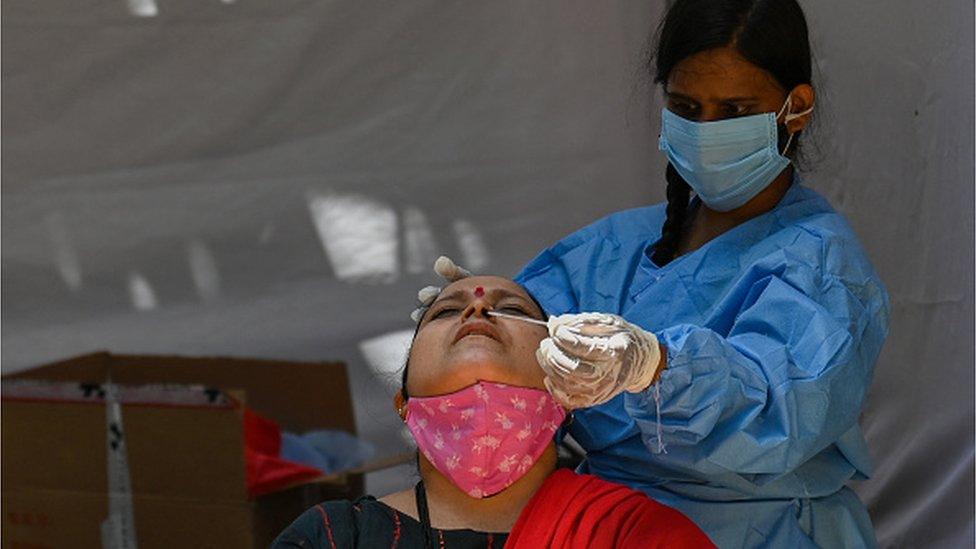
Chief Minister Uddhav Thackeray said people were failing to take precautions
The chief minister of the western Indian state of Maharashtra has warned a full lockdown could be imposed unless Covid-19 cases begin to fall.
Uddhav Thackeray said people were failing to take precautions and warned the state's health system could become "inadequate" within weeks.
Maharashtra recorded at least 47,828 cases on Friday.
The same day, India reported 81,466 new cases, and 469 deaths - the highest daily spike since December.
In a televised address, Mr Thackeray said: "Consider this a warning that I could impose a complete lockdown in the next couple of days if things remain the same."
Some people were getting Covid-19 after being vaccinated because they had stopped wearing masks, he added.
Last Sunday, he asked officials to prepare a plan to impose a lockdown and said people were not following safety rules.
But the idea of new restrictions has been met with resistance from the opposition parties, members of the public and even from within the government.
Pune city has already imposed a curfew and closed religious places, hotels, bars, shopping malls and cinemas for a week.
The government has also brought down the cost of PCR and rapid antigen tests in a bid to tackle the outbreak. , external
India Covid vaccination: 'Everybody should get jabs as cases are rising'
Since the pandemic began, India has reported more than 12.2 million cases and more than 163,000 deaths. It is the third-highest number of Covid-19 infections in the world after the US and Brazil.
India's Covid caseload had fallen sharply in January with fewer than 15,000 infections daily.
But cases began to spike again in March largely because of poor test-and-trace and lax safety protocols.
On Thursday, India launched the third phase of its coronavirus vaccination drive with those above the age of 45 eligible for the jab. In the first two phases, frontline workers and people above the age of 60 were vaccinated.
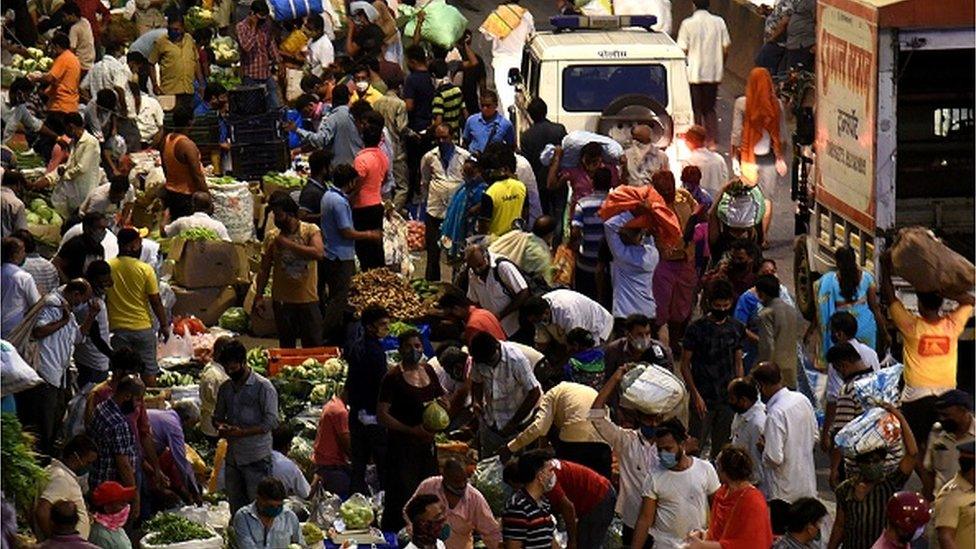
As Covid-19 cases fell, many Indians began attending social gatherings and crowded markets
So far, India has administered more than 68 million doses. The world's biggest inoculation drive aims to cover 250 million people by July, but experts say the pace needs to further pick up to halt the spread.
Some have also attributed the recent uptick in numbers to a highly contagious variant of the coronavirus but the government has denied this.
Experts say India's second wave is being fuelled by people being less cautious - and mixed messaging by the government.
As the infections fell, a sense of complacency set in and after being cooped up in their homes for nearly a year, many Indians began attending big weddings and family functions and started visiting crowded marketplaces.
Thousands have also participated in large election rallies in several states where regional elections are being held.
- Published1 April 2021
- Published2 April 2021
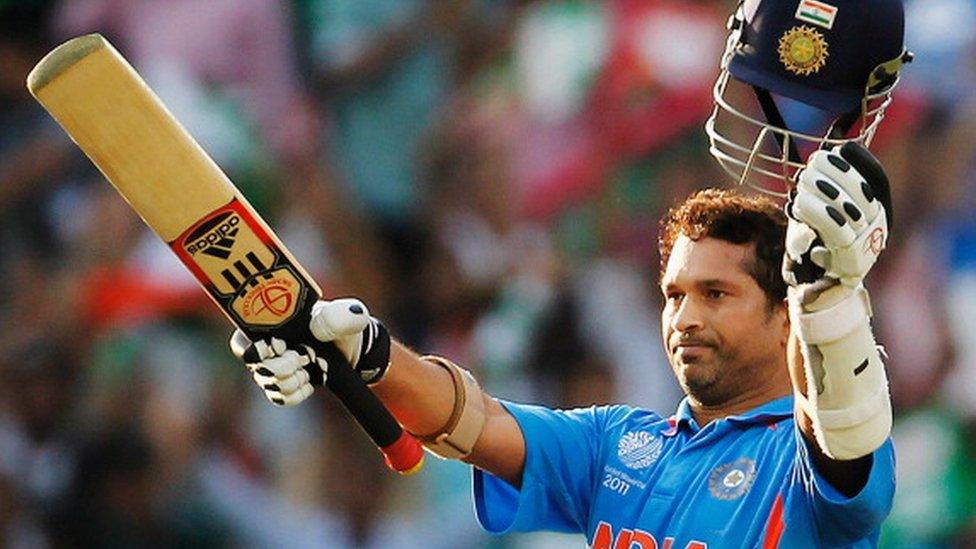
- Published26 April 2022
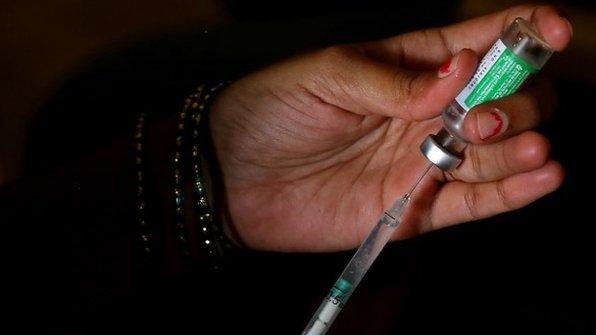
- Published18 July 2022
